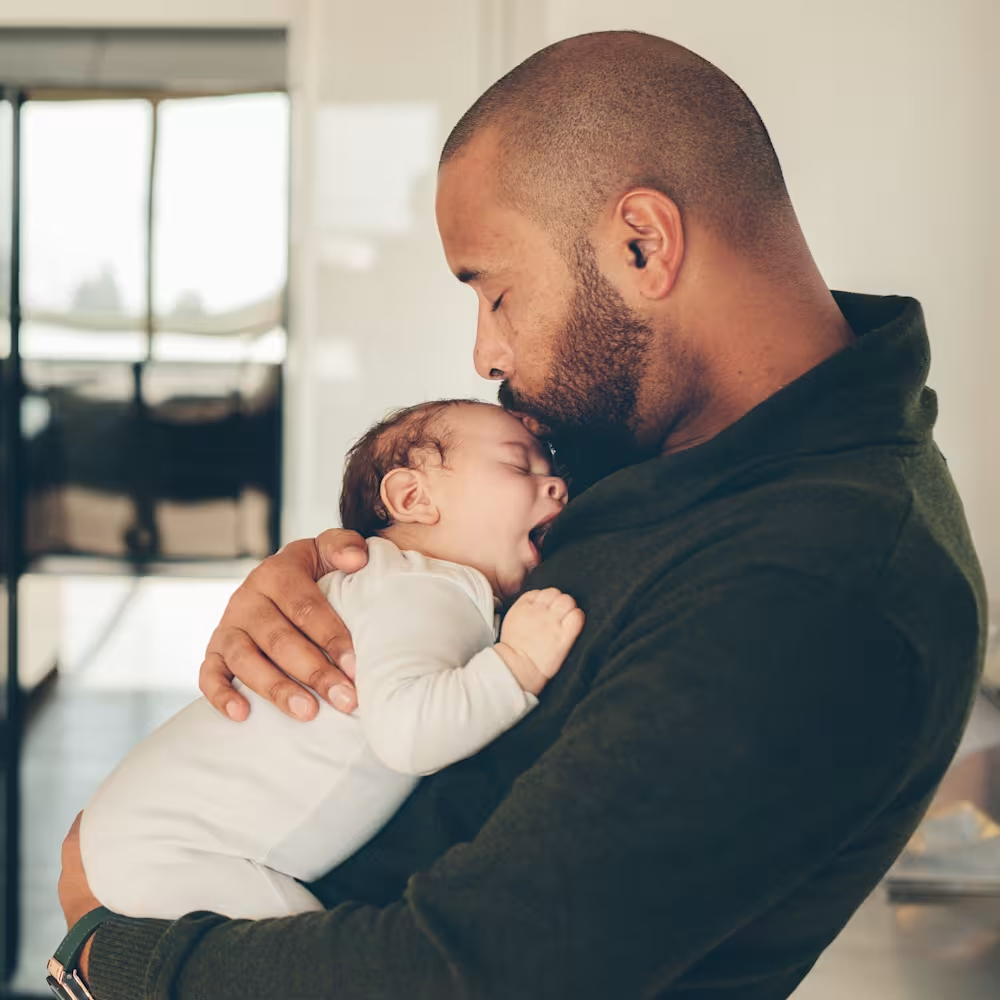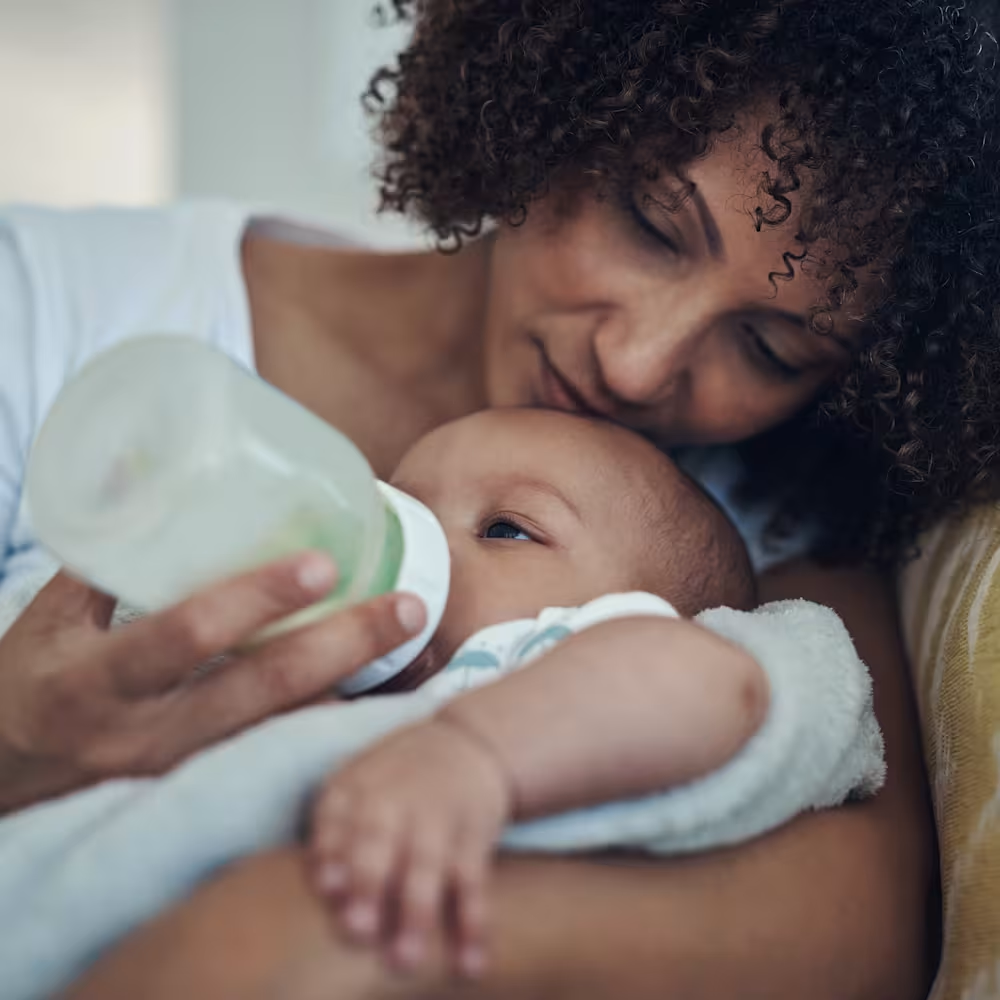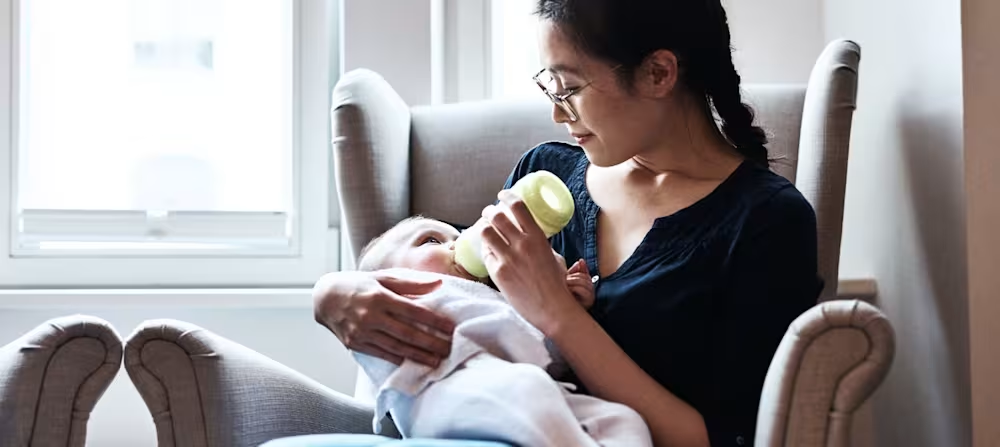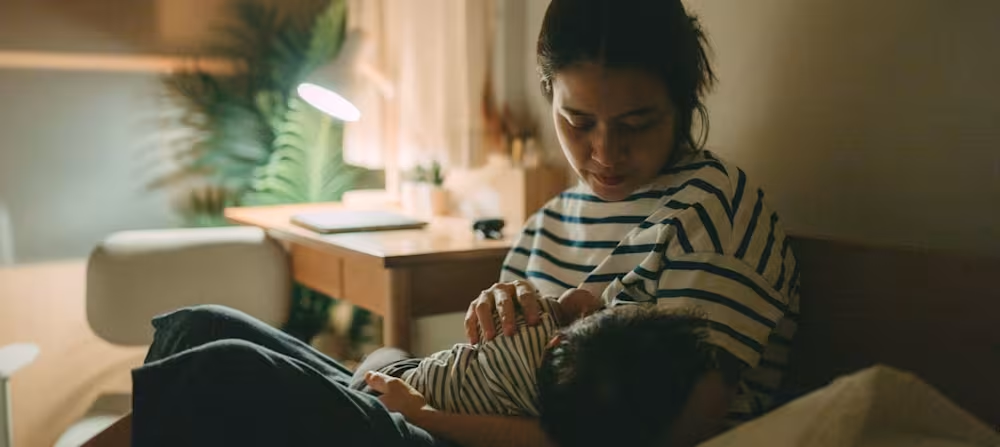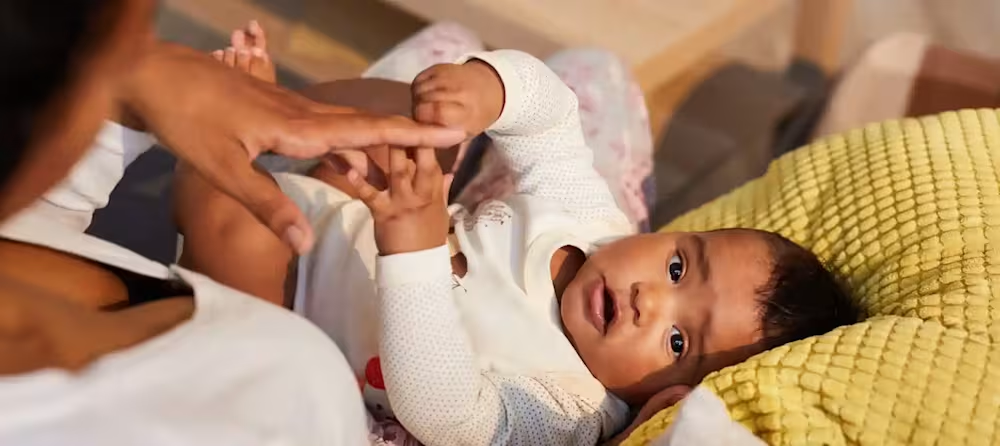What to do if your baby poops while sleeping
Updated Oct 16, 2025
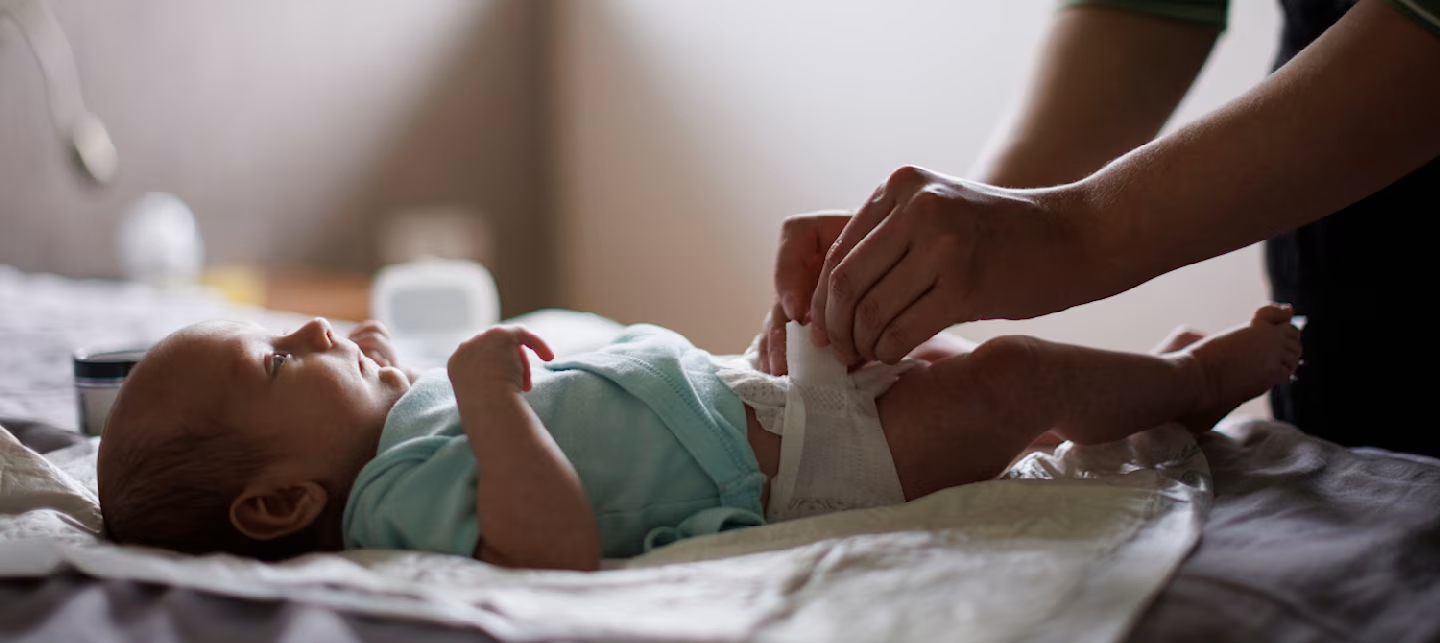
If your baby has ever woken up with a messy diaper (or you’ve smelled the telltale signs during a midnight feeding), you’re definitely not alone. Babies can and do poop in their sleep, especially in the early months when their digestive systems are still maturing. The tricky part is deciding whether to let them snooze or attempt a diaper change without turning bedtime into a full-on wake-up call.
Is it normal for babies to poop in their sleep?
Yes, it’s normal and very common for babies to poop while sleeping, especially in the newborn stage. Here’s why:
Immature digestive system: Newborns and younger infants often poop while asleep (both at night and during daytime naps) because their digestive systems are still developing.
Irregular patterns are expected: Stool frequency isn’t on a set schedule just yet, so pooping during sleep is generally no cause for concern [].
This usually improves with age: As babies grow, their digestive system and feeding schedule become more regular, leading to fewer night poops.
Why do babies poop at night?
Nighttime poops are usually tied to how often and what your baby eats, plus the fact that their digestive system is still finding its rhythm. Here are the most common reasons:
Frequent feedings:, and more frequent eating often means more frequent pooping — even in the middle of the night!
Active digestion: A baby’s immature digestive system processes breast milk quickly (typically quicker than formula), so stool passes through at unpredictable times, including during sleep [].
Growth spurts: When babies eat more during a , their digestive system often ramps up, too, which can result in increased bowel movements [].
Developing sleep patterns: When a baby wakes briefly, their body may take the opportunity to poop.
Diet sensitivity: Introducing new foods (hello, solids!) or reacting to something in breast milk or formula can temporarily change your baby’s stool, including the frequency and timing [].
Medications: Certain medications, such as antibiotics, may cause your baby to poop more or have diarrhea, which can lead to more instances of pooping at night [].
Illness: Though less common, some bacterial and viral infections (like gastroenteritis or norovirus) can affect bowel movements, often causing diarrhea []. If nighttime poops seem excessive or are accompanied by discomfort, fever, or vomiting, consult your pediatrician.
Determining whether to wake your baby for a diaper change depends on their age and stage. Use this guide for quick reference:
Age group | What to expect | What to do | Pro tip |
Newborn - 3 months | Night poops are very common due to your baby’s immature digestive system. Most babies will need multiple nighttime changes overnight, typically around feeding times. | Change promptly to prevent diaper rash. Use a dim nightlight, keep your voice soft, and soothe them back to sleep. Many parents find it helpful to check and change baby before a nighttime feeding. | Apply a protective barrier cream (like zinc oxide) to guard against moisture. |
3 - 6 months | Poops at night might slow as sleep consolidates, though they can still happen. | If you smell or feel a poop, change your baby right away with minimal stimulation. If the diaper is only wet, it’s usually safe to wait until morning. | Highly absorbent overnight diapers can help minimize nighttime disruptions. |
6 - 12 months | Solids make bowel movements more formed and often encourage pooping during the day. | Change your baby promptly if you suspect a poop (staying in poopy diapers overnight can irritate skin and lead to diaper rash). Keep changes quick, ideally with little stimulation. | Do a “last change” right before bed (after their final feeding) to catch a possible poop. |
12 months and up | By toddlerhood, most pooping happens during the day. Overnight poops become rare. | If it happens, change them promptly, but keep the lights dim and avoid engaging. Treat it as a quick interruption, not playtime. | A consistent feeding schedule, with most meals earlier in the day, helps regulate bowel movements to occur more regularly during the daytime. |
How to handle nighttime poops with minimal disruption
Middle-of-the-night diaper duty doesn’t have to turn into a full wake-up call. A few minor tweaks can make changes quicker, calmer, and less disruptive to your baby’s rest.
Keep lights dim: Use a soft nightlight instead of overhead lights to avoid overstimulating your baby.
Limit interaction: Save the coos and chatter for daytime — keep your voice low and movements efficient.
Have supplies ready: Stock a small diaper station with diapers, wipes, and cream so you’re not fumbling around at 2 AM.
Choose overnight diapers: Extra-absorbent diapers hold up better through long stretches of sleep and help prevent leaks.
Apply barrier cream: A thin layer of diaper cream applied before bed can help protect against skin irritation caused by overnight moisture.
Use warm wipes: Cold wipes can be startling on your baby’s skin — warming them helps keep your baby calm and ready to fall back asleep in a clean diaper.
Offer quick comfort: A gentle shush, feed, or cuddle can help your baby drift back to sleep once they’re changed.
When do babies stop pooping at night?
Most babies gradually outgrow nighttime poops as their digestive system matures and their feeding schedule becomes more regular. Still, every baby is different — some may take longer, especially if they continue night feedings past 6 months or have sensitive digestive systems.
Newborn - 3 months: Pooping at night is very common due to frequent feedings and a developing digestive system.
3 - 6 months: Many babies begin consolidating sleep and pooping less overnight, though some may still have bowel movements if they’re feeding at night or cluster feeding, like during a growth spurt.
6 - 12 months: As solids become a regular part of their diet, poops usually shift to daytime hours. Night poops become less common.
12 months and up: By toddlerhood, most children poop during the day. Nighttime poops are rare, but they can still happen occasionally.
Preventing diaper rash from night poops
Both stools and urine can irritate your baby’s skin in different ways, but nighttime poops may raise the risk of diaper rash if not handled quickly []. Here are the best ways to protect your baby’s skin:
When to talk to your pediatrician
Most nighttime poops are just a part of your baby’s development, but sometimes they can signal something worth checking out. Call your pediatrician if you notice:
Persistent diaper rash or skin irritation: If your baby’s rash doesn’t improve with at-home care or worsens with sores or a fever, call your pediatrician [].
A sudden change in bowel habits: For example, pooping much more often at night than usual or a significant shift in stool frequency without explanation [].
Signs of pain: If your baby cries, strains excessively, or seems unusually uncomfortable during bowel movements [].
Frequent watery stools or diarrhea: This can lead to dehydration and may require an evaluation by a doctor [].
Blood or mucus in stool: Even small streaks are worth mentioning to rule out infection or other concerns [].
Takeaway
Nighttime poops are common in the early months: Newborns and young babies often poop while sleeping due to their frequent feedings and immature digestive systems.
When in doubt, change promptly: To prevent diaper rash and discomfort, it’s usually best to change a soiled diaper — just keep lights dim and interactions minimal.
It gets easier with age: Most babies stop pooping at night between 6 - 12 months as their digestive system and feeding schedules mature.
Trust your instincts: If you notice unusual stool frequency, signs of pain, or persistent skin irritation, don’t hesitate to check in with your pediatrician.
Share article:
Note: The content on this site is for informational purposes only and should not replace medical advice from your doctor, pediatrician, or medical professional. If you have questions or concerns, you should contact a medical professional.
7 Sources
Share article:

